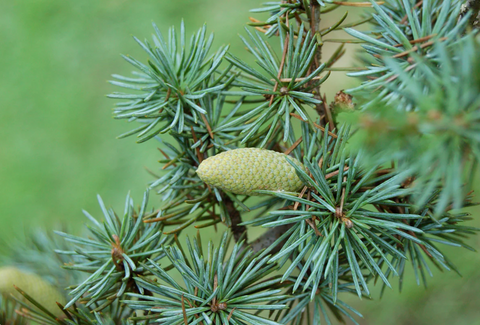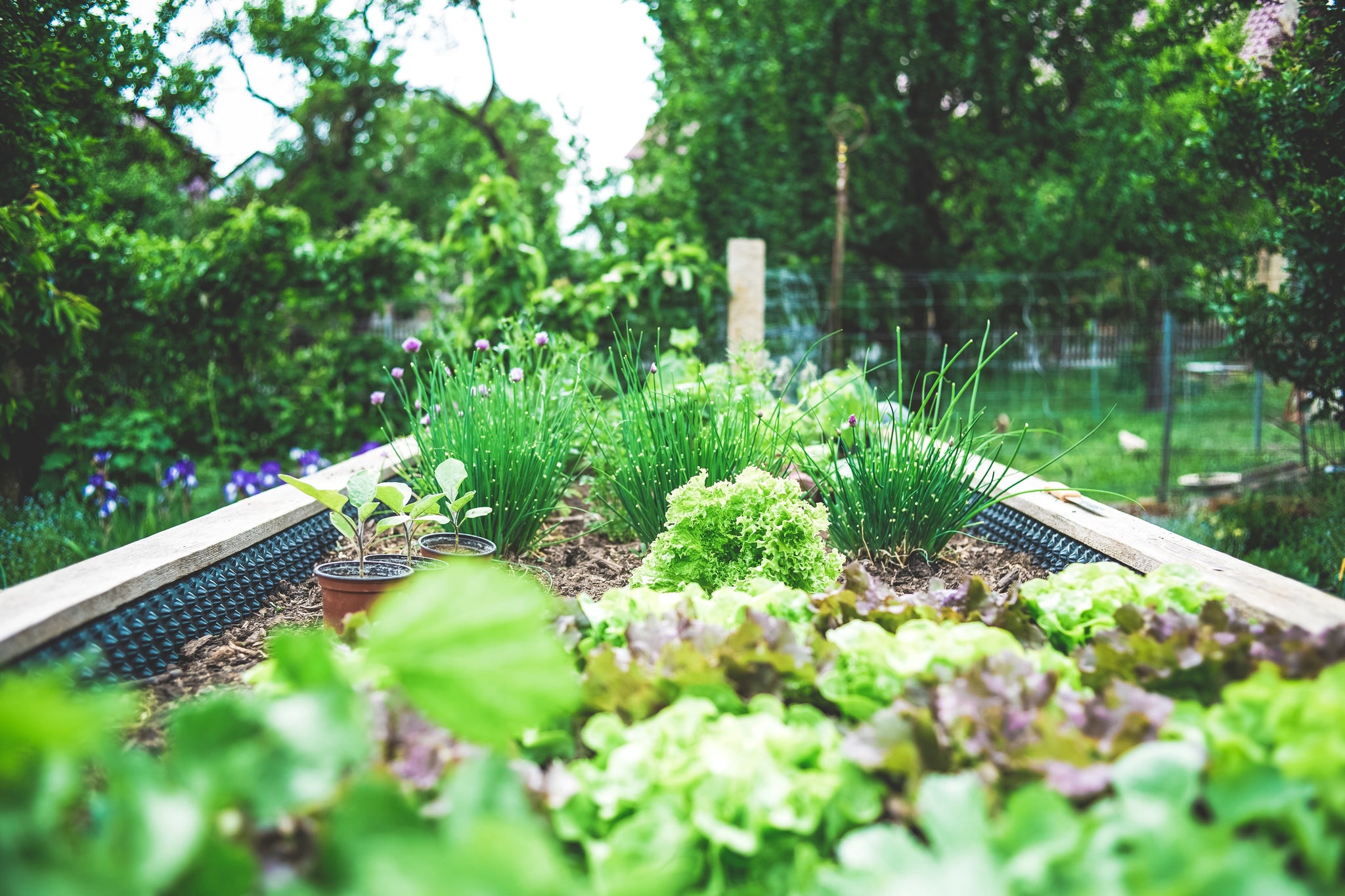Whether you’re caring for an abundant garden, a window planter, or a few herbs in your kitchen, essential oils can help maintain and protect your garden naturally.
Why essential oils?
Highly concentrated compounds derived from plants, essential oils have powerful benefits to your growing garden. They repel pests, fend off disease and attract our favorite pollinators like bees and butterflies.
Standard garden pest controls contain synthetic chemicals that are toxic to the health of humans and the planet. By using essential oils in your garden, you prevent harmful chemicals from infiltrating your garden and you create a safe environment to grow herbs or veggies for you and your loved ones.
Mother Nature's Medicine
Plants produce essential oils to protect themselves from a variety of microbes, fungi or bacteria that may threaten their survival. So why not leverage nature's intelligence and use essential oils to nurture your garden?
Check out our top essential oils for gardening:
Rosemary Essential Oil

Rosemary works wonderfully to repel many pests and their larvae including flies, fleas, and mosquitoes, while attracting beautiful butterflies.
How to use it: Place a few drops on a pot or around plants to keep bugs from chewing the leaves of your plants.
Peppermint Essential Oil

Lucky for us, many annoying garden pests like aphids, flies, beetles and spiders despise peppermint!
How to use it: Place a few drops around the edge of your garden. To keep spiders and ants out of your house, place drops around the baseboards or cupboards.
Basil Essential Oil
Not only does the sweet herbal scent of basil repel pests, basil essential oil helps boost plant growth.
How to use it: Combine 10 drops of basil essential oil in a 4-ounce glass spray bottle of water to mist veggies such as tomatoes, beans, broccoli, peppers, and potatoes.
Tea Tree Essential Oil
Tea tree is the best essential oil to combat fungus assaulting your plants.
How to use it: Make a spray mist of 10 drops of tea tree essential oil in a 4-ounce glass spray bottle of water to mist affected plants. Spray the stems more so than the leaves, as tea tree can cause the plants to be more sun-sensitive.
Lavender Essential Oil

Another butterfly favorite, lavender essential oil also attracts bees.
How to use it: Add 1-2 drops on a cotton ball and place it in pots or in the garden to attract both beautiful and buzzy pollinators.
Orange Essential Oil

The clean and sweet aroma also draws in both bees and butterflies.
How to use it: You can make a blend of rosemary oil, lavender oil, orange oil in a spray bottle or combine a few drops of each on cotton balls.
Lemongrass Essential Oil

Use lemongrass to control fleas, mosquitoes, ticks, chiggers and beetles.
How to use it: Place a few drops around the edge of your garden or on your plants’ pots.
Cedarwood Essential Oil

The warm and earthy aroma of Cedarwood is great for repelling slugs, snails, roaches and moths.
How to use it: Place a few drops around your garden or on pots.
Cinnamon and Clove Essential Oils

Cinnamon and clove are powerhouse essential oils for removing weeds.
How to use it: Fill a large glass pump spray bottle with distilled white vinegar, a squirt of Castile soap and 12 drops of cinnamon and/or clove essential oils. Shake, pump up and then spray (only) on the weeds
Garden Tea
Water your plants with a nourishing garden tea. Use your choice of essential oil, adding 8 drops in two cups of hot water. Allow the tea to cool. Dilute this at the rate of 1/4 cup added to one gallon of water. Shake and water your garden as usual.
Gardening Goodness
Whether you garden to relax, grow your own food, admire nature, or all of the above, using essential oils in your garden is a simple way to make a positive impact on your garden, your community, and our pollinators.
And bees aren’t the only ones enjoying the aromas. Watch your passion for gardening amplify with the scents of essential oils in the air!


 Oct 30, 2022
Oct 30, 2022 Posted by: Perpetual Pollen
Posted by: Perpetual Pollen

